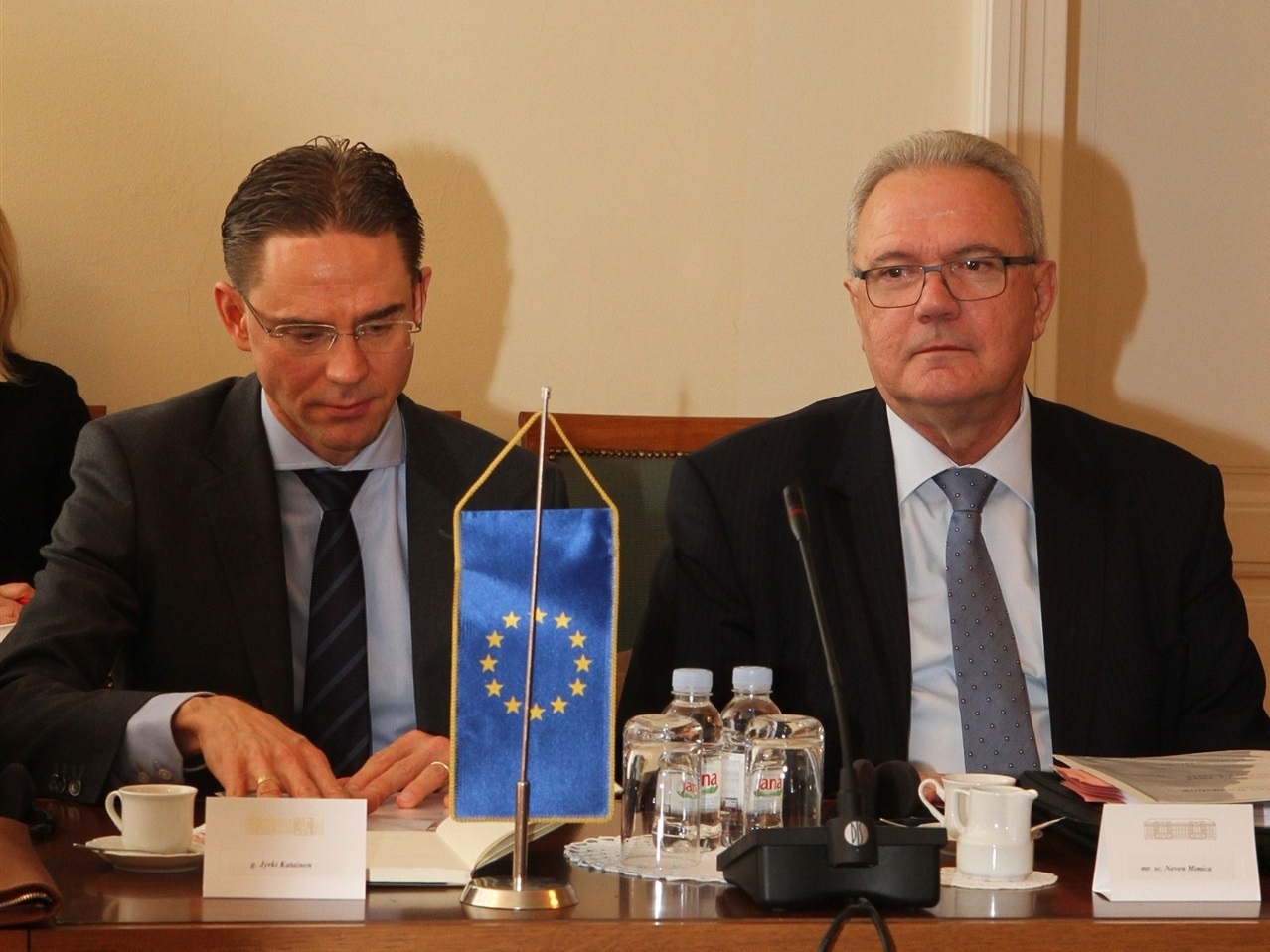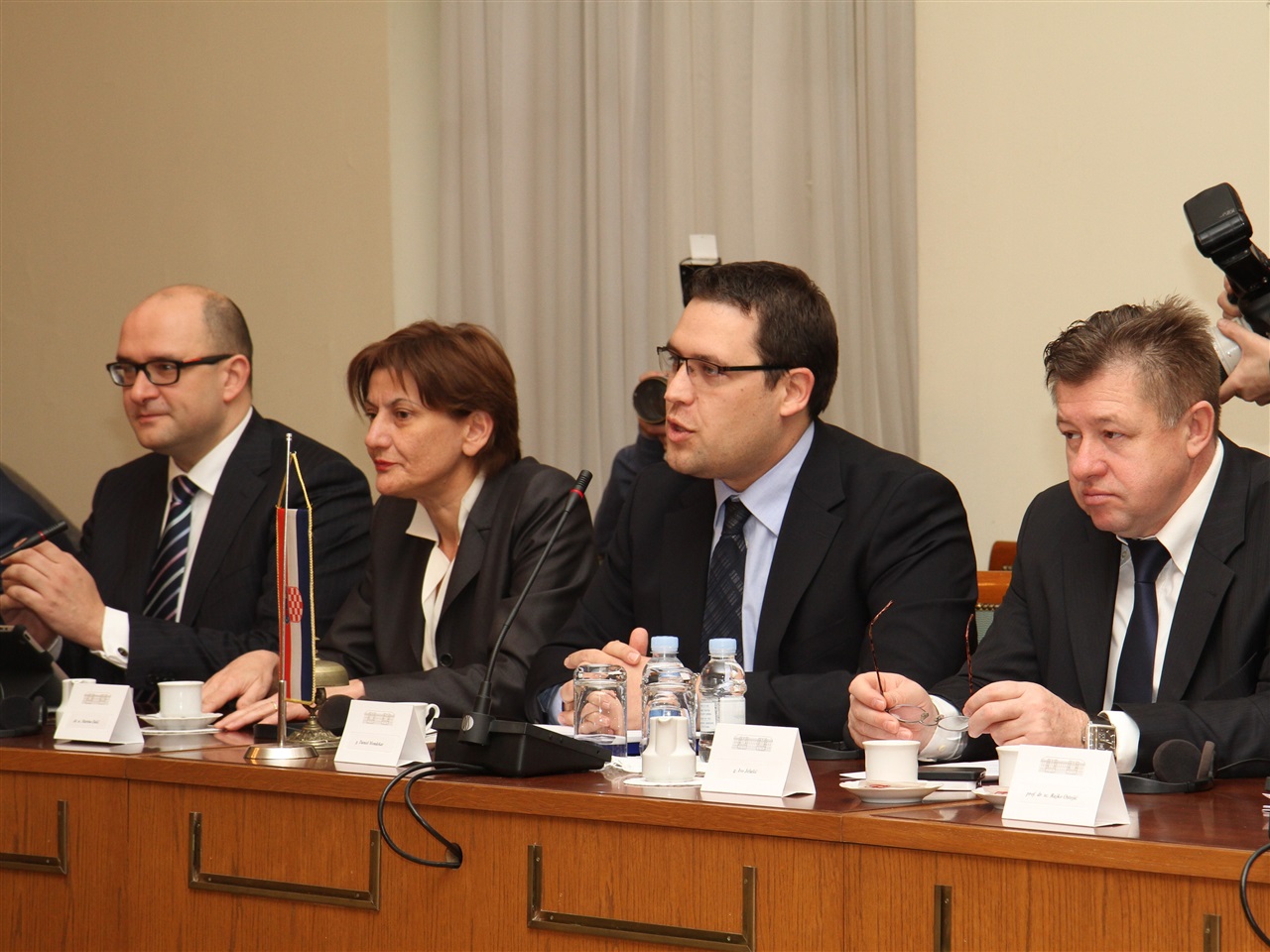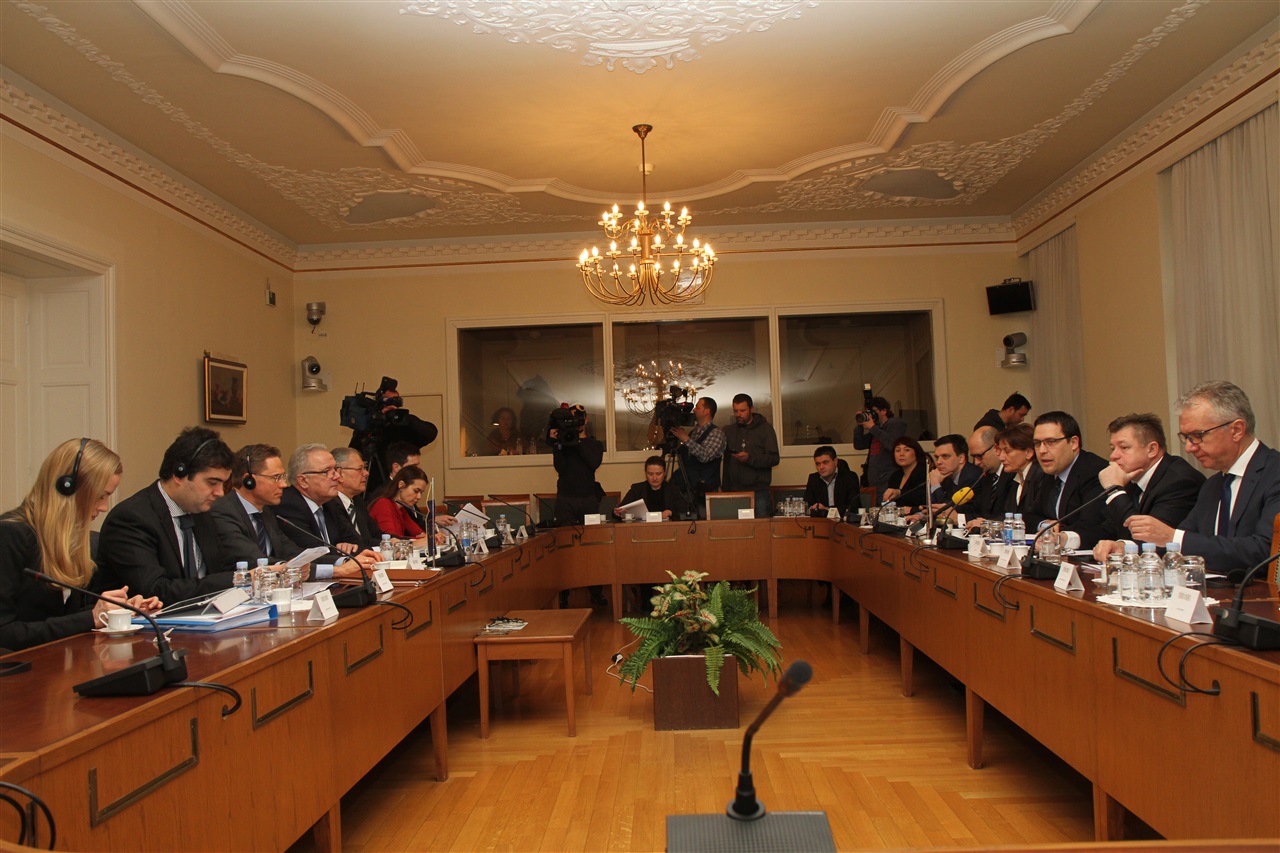
Zagreb - Addressing the Croatian parliament on Monday, the Vice-President of the European Commission responsible for Jobs, Growth, Investment and Competitiveness, Jyrki Katainen, said that the EC's new Investment Plan was aimed at strengthening growth and job creation and that it should mobilise at least 315 billion euros in private investments over the next three years, with focus on developing communication and energy infrastructure and stimulating small and medium entrepreneurship.
Katainen presented the EC's new investment plan at a meeting of the parliamentary committees on European affairs, finances and state budget, regional development and EU funds, and the economy. EC Commissioner for International Cooperation and Development Neven Mimica also attended the meeting.
Katainen pointed out that the objective of the EC plan, which should be launched before the summer, was to attract private investments into strategic sectors with priority being given to riskier projects in less developed EU member states in the south.
The EC wishes to strengthen the EU market by harmonising the digital and energy markets and to stimulate financing for SMEs on the capital market, he said.
Seeing that lack of information is one of the main barriers to investments, the plan envisages the establishment of a transparent project portfolio, which would allow investors to have access to information regarding existing and potential projects, he added.
The member states in December sent the EC a list of potential projects with a total value of 1,300 billion euros. Among the 2,000 projects submitted, 77 were from Croatia with a total value of 21.5 billion euros.
The projects will be selected by an independent body without any political interference or national or sector quotas being taken into account, Katainen underscored.
The plan does not offer fresh money but will attempt to attract private investments with the aid of existing resources in the EU budget and a contribution from the European Investment Bank (EIB), he explained.
Europe is full of money and liquidity is not a problem. The problem is that investments are not being made in the real economy, he said.
Under the EC's plan, a new European Fund for Strategic Investments (EFSI) will be set up in partnership with the EIB. The fund will have 21 billion euros at its disposal, including 16 billion of guarantees created under the EU budget, while the EIB will commit 5 billion euros.
The EFSI should attract private investments and could reach and overall multiplier effect of 1:15. That means that on average the fund can generate 15 euros of investment in the real economy that would not have happened otherwise.
This effect could be even higher. The member states with more limited fiscal space should prioritise investment and growth-related expenditure in their budgets.
The starting capital of 16 billion euros could lead to investments of 240 billion euros for strategic investments notably broadband and energy networks, as well as transport infrastructure, particularly in industrial centres; education, research and innovation; and renewable energy and energy efficiency.
The 5 billion from the EIB should attract 75 billion euros for SMEs and mid-cap companies.
The EC estimates that the plan could mobilise 1.3 million new jobs and the International Labour Organisation estimates that that number could be as high as 2.1 million, said Katainen.
He added that the responsibility for the plan to succeed lay mainly with member states to ensure stable business conditions and strengthen competitiveness in order to utilise the new opportunities being offered to them.
You cannot outsource your national responsibility... there is no prosperity overnight, it takes time, he said.
A major part of the funding under the EC's plan is envisaged for SMEs, he stressed, noting that there will be no room for misuse as funding will be in the form of loans that will have to be repaid and that these are not grants as is the case with European structural funds.
Katainen pointed out the example of Spain and its having used 5 billion euros from European structural funds to issue guarantees for loans issued to SMEs.
Regarding the LNG terminal on Krk in the northern Adriatic, Katainen agreed that projects of this nature were significant to diversify energy sources, particularly if they could supply larger areas or several countries.

